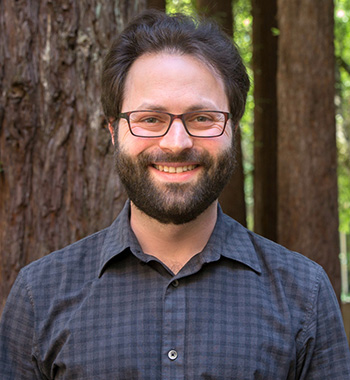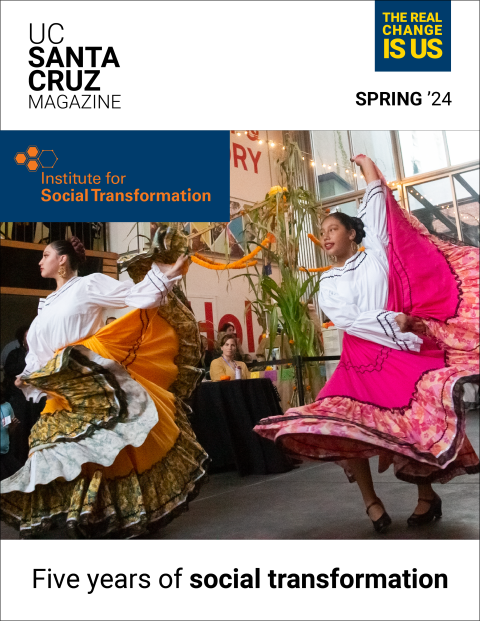Alexander Ayzner, assistant professor of chemistry and biochemistry, has received a Faculty Early Career Development (CAREER) Award from the National Science Foundation (NSF) to support his research on soft self-assembling systems for harvesting energy from light.
Inspired by the natural light-harvesting machinery in the leaves of plants, Ayzner is developing macromolecular building blocks that absorb light and are capable of highly efficient electronic energy transfer, similar to that performed by the natural light-harvesting antenna proteins in plant chloroplasts. Ultimately, he hopes to design a complex, self-assembling system that can use light energy to generate electricity or produce chemical fuels.
"The applications would be on a small scale, to provide a local power source for a small device or a molecular machine," Ayzner said. "The goal is not to replace the solar cells used in rooftop panels but to construct a soft, microscopic energy converter that could one day function as an artificial light-harvesting organelle akin to those found in nature. By incorporating such assemblies into flexible and stretchable platforms, these soft light-harvesting systems could open up a range of novel applications."
Ayzner also plans to use the topic of energy-harvesting molecules as a vehicle to teach advanced chemical problem-solving skills in a course targeting chemistry transfer students.
The CAREER Awards are NSF's most prestigious awards in support of early-career faculty who have the potential to serve as academic role models in research and education and to lead advances in the mission of their department or organization. The award provides $675,000 over five years to support Ayzner's research, education, and outreach activities.
Ayzner's lab has demonstrated ultrafast electronic energy transfer in water-soluble, electronically-active polymer systems called inter-conjugated polyelectrolyte complexes (CPECs). With the new grant, he and his graduate students will focus initially on studying the fundamental factors that govern electronic energy transfer in these complexes and characterizing their properties in complex fluids.
Ayzner's lab is also investigating the use of liposomes (artificial vesicles with a lipid bilayer envelope) to serve as a scaffold for self-assembly of CPEC-based light-harvesting antennae. This could form the foundation for a hierarchically assembled soft light-harvesting device.
The problem-solving course Ayzner is developing aims to prepare chemistry students for physical chemistry, a demanding course that many transfer students find especially challenging. The two-quarter problem-solving course will also prepare students to tackle open-ended research problems and encourage them to get involved in undergraduate research projects.
"My main goal is to help develop students' abstract chemical thinking skills and to provide them with the confidence to succeed as independent scientists," he said.
Ayzner earned his Ph.D. in physical chemistry at UCLA and did postdoctoral research at Stanford University before joining the UCSC faculty in 2014.



